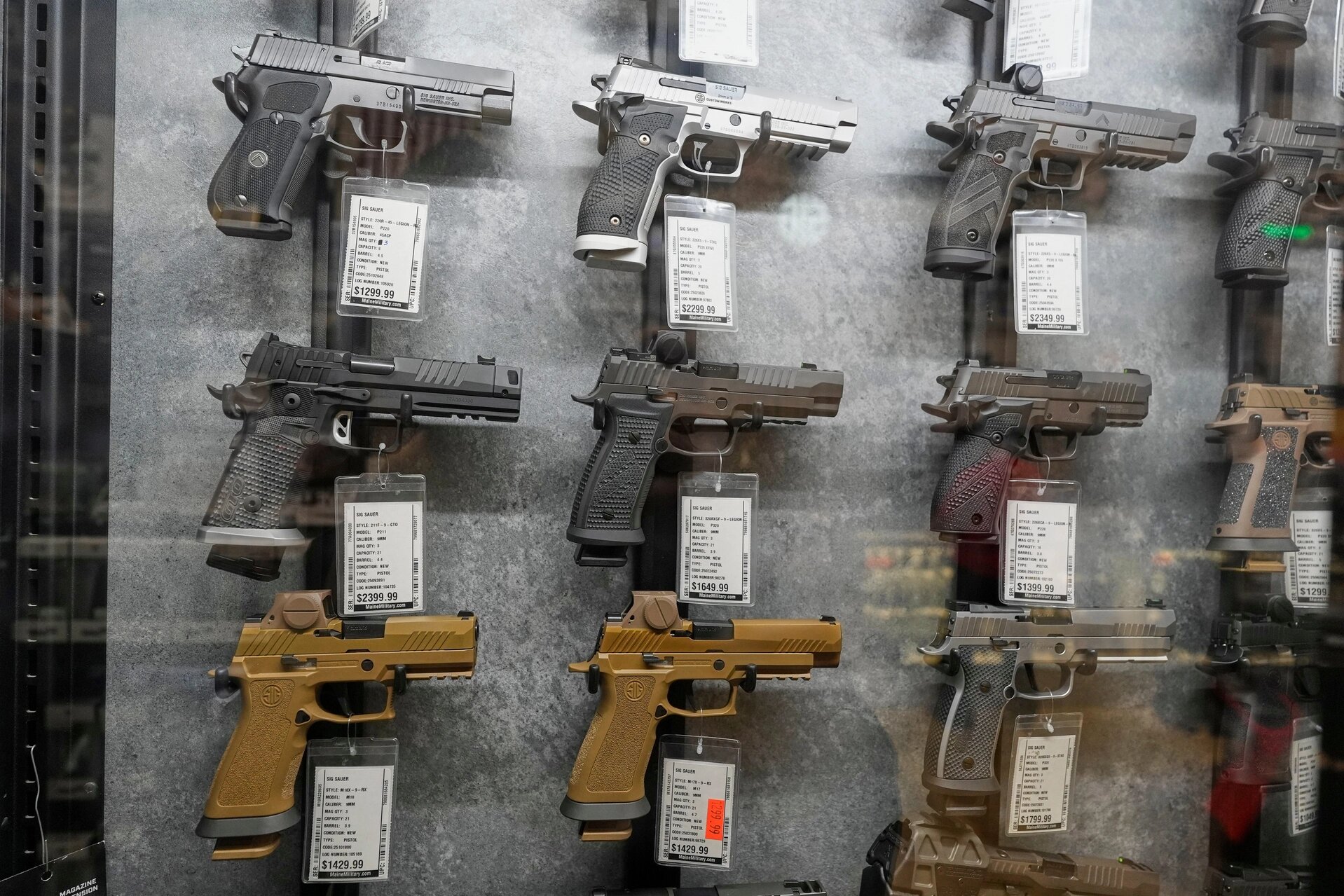The Lewiston shooting spurred calls for change.

PORTLAND, Maine — Two years after the deadliest mass shooting in state history, Maine residents voted Tuesday to make it easier for family members to petition a court to restrict a potentially dangerous person’s access to guns.
A ballot question asked residents if they wanted to build on the state’s yellow flag law, which allows police officers to initiate a process to keep someone away from firearms. Approval adds Maine to more than 20 states that have a red flag law, which empowers family members to take the same step.
Gun safety advocates began pushing for that after 18 people were killed when an Army reservist opened fire at a bowling alley and a bar and grill in Lewiston in October 2023. An independent commission appointed by Maine’s governor later concluded that there were numerous opportunities for intervention by both Army officials and civilian law enforcement.
Gun control proponents characterized that law as too weak and difficult to implement. The yellow flag law requires police to take the potentially dangerous person into protective custody and hold them for a mental health evaluation.
“Maine voters have taken the safety of our communities into our own hands by passing common-sense, responsible gun legislation that will save lives and help keep our kids and families safe, not just from the horrors of a tragedy like Lewiston, but from the devastating impacts of everyday gun violence,” said Nacole Palmer, executive director of the Maine Gun Safety Coalition, which sponsored Tuesday’s proposal.
Opponents of the red flag law said Tuesday that it’s significant the yellow flag law is still state law.
“We are glad that Maine’s yellow flag law remains intact, and we look forward to continuing to work to improve our state’s safety. We’re going to be reviewing all options to keep Mainers safe as we move into the future of the state,” the No on 2 Coalition said in a statement.
In the aftermath of the shooting, law enforcement officers testified before the independent commission that they had difficulty implementing the state’s existing yellow flag law, which they described as cumbersome and time-consuming.
The campaign in favor of the red flag law released an ad this fall in which Arthur Barnard, father of Lewiston shooting victim Artie Strout, said the stronger law could have saved his son’s life.
“People who are having a mental health crisis need help, not easy access to guns,” Barnard said in the ad. “Maine’s laws were too weak to save my son’s life. Vote ‘Yes on 2’ to change that.”
The red flag proposal has encountered resistance from Republicans, hunting groups, gun rights organizations and some Democrats. Maine is a state with relatively low crime where gun ownership is common, and the state’s laws should reflect that, opponents have said.
Maine Gov. Janet Mills, a Democrat, opposed the ballot question. She said in October that the yellow flag law was “carefully crafted” with Maine in mind, and it remains the right law for the state.
“We found common ground on one of the most controversial issues of our time,” Mills wrote in an opinion piece in the Portland Press Herald. “Question 2 would create a new, separate and confusing process that will undermine the effectiveness of the law and endanger public safety along with it.”
